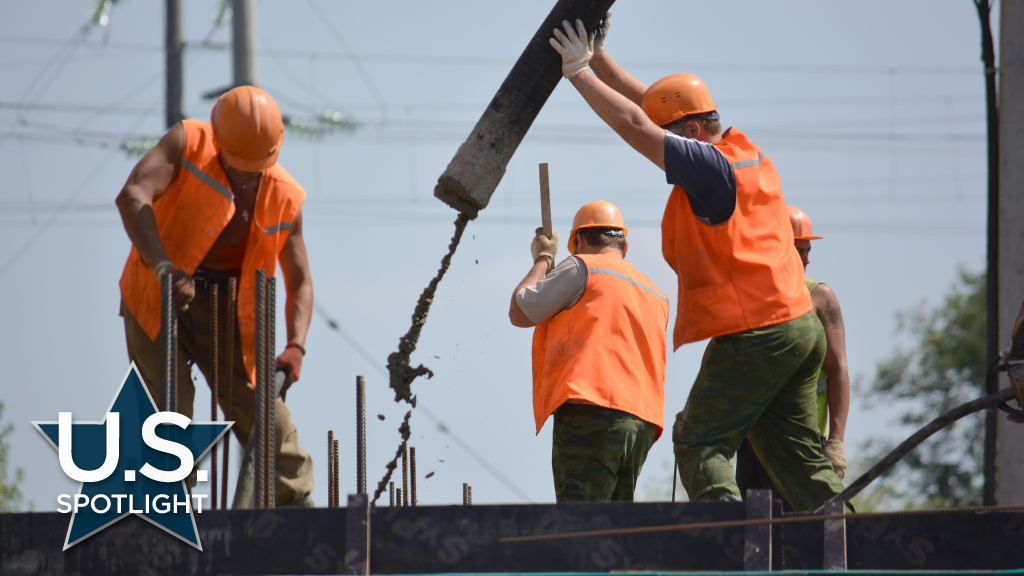Concrete pumping is full of hazards that can lead to injuries and even fatalities.
One of the biggest dangers is a concrete pump boom hitting a power line.
Another peril is hose whipping, which is caused by air that is trapped in the delivery line. When the air is released, the end of the hose can whip and injure any workers in the area.
Because concrete pumping is dangerous, safety and training is taken very seriously in the industry.
So Christi Collins’ recent announcement that concrete pump operators in the U.S. now have three competency certification programs to choose from was welcome news to the industry.
Collins, who is executive director of the American Concrete Pumping Association (ACPA), said that, in addition to certification by the ACPA itself, the Certified Concrete Pump Operator (CCPO) and the National Commission for the Certification of Crane Operators (NCCCO) recently launched independent certification programs that can offer concrete pumping companies an additional layer of risk protection.
Collins made the announcement at the ACPA 2022 Operations Safety Maintenance (OSM) Conference, which was held in September near Denver, Colo. The conference attracted about 200 participants from the U.S. and Canada.
“ACPA has its own certification program, but we are supporting both CCPO and NCCCO certification,” said Collins. “We are training specialists and we intend to focus on training and leave certification to CCPO and NCCCO, except for the very small companies that don’t need to go for the max.”
ACPA’s instruction will focus on learning repetition, so that learners will know what to do to stay safe on the job.
“Keeping safe is the most important thing,” said Collins. “A certification card is a feather in their cap.”
ACPA is also developing ACPA University, which will be made up of micro-size learning modules that put learners on the path to certification on different kinds of equipment.
ACPA was founded in 1974 to promote concrete pumping as the choice method of placing concrete and to encourage and educate the concrete pumping industry on safe concrete pumping procedures.
In addition to Collins, Thom Sicklesteel, chief executive officer of NCCCO, spoke to the OSM conference about his organization’s certification program.
“NCCCO is accredited by ANAB and is one of four that are authorized to provide crane operator exams in the United States,” said Sicklesteel.
The ANSI National Accreditation Board (ANAB) is a non-governmental organization that provides accreditation services and training to public- and private-sector organizations. ANAB is the largest accreditation body in North America.
To become certified by NCCCO, applicants must be at least 18 years of age, pass a written exam and comply with the organization’s substance abuse policy and its code of ethics.
The written exam contains 80 questions that must be completed in 90 minutes.
“We’re also developing a practical exam that is expected to be finished and ready to be administered by the end of the year,” said Sicklesteel. “The exam, which will take less than one hour, will be administered by proctors.”
Certification is valid for five years.
Certified concrete pump operators receive a laminated photo ID card at no cost when they certify or recertify.
They must recertify during the 12 months before their certification’s expiration date.
Ammar Kavazovic told the OSM conference that the Certified Concrete Pump Operator certification is delivered by the British Columbia Construction Safety Alliance (BCCSA).
Kavazovic, who is BCCSA’s director of programs and initiatives, said certificate holders must have demonstrated theoretical knowledge of concrete pump operations and have shown they can apply this knowledge by working competently in the field.
The CCPO program offers certifications in five pump types: Tower placing booms; high- and low-pressure line pumps; and two kinds of truck-mounted boom pumps.
To become certified, applicants must be at least 18 years old; hold a valid Class 3 B.C driver’s license (for truck-mounted boom pump); and pass the written and practical certification tests.
“The written exam is a multiple-choice theory test, and the practical exam is an onsite assessment where a professional assessor observes the performance of all phases of the pumping operation, from set-up, to priming, placing and clean-out,” said Kavazovic. “ACPA supports both the CCPO and NCCCO programs, and it is up to each company to determine which is best for its needs.”
Although the CCPO is mandated only for the B.C. construction industry, it is what Kavazovic calls a fully developed plug-and-play program that can be launched anywhere and was, in fact, designed for international use.










Recent Comments